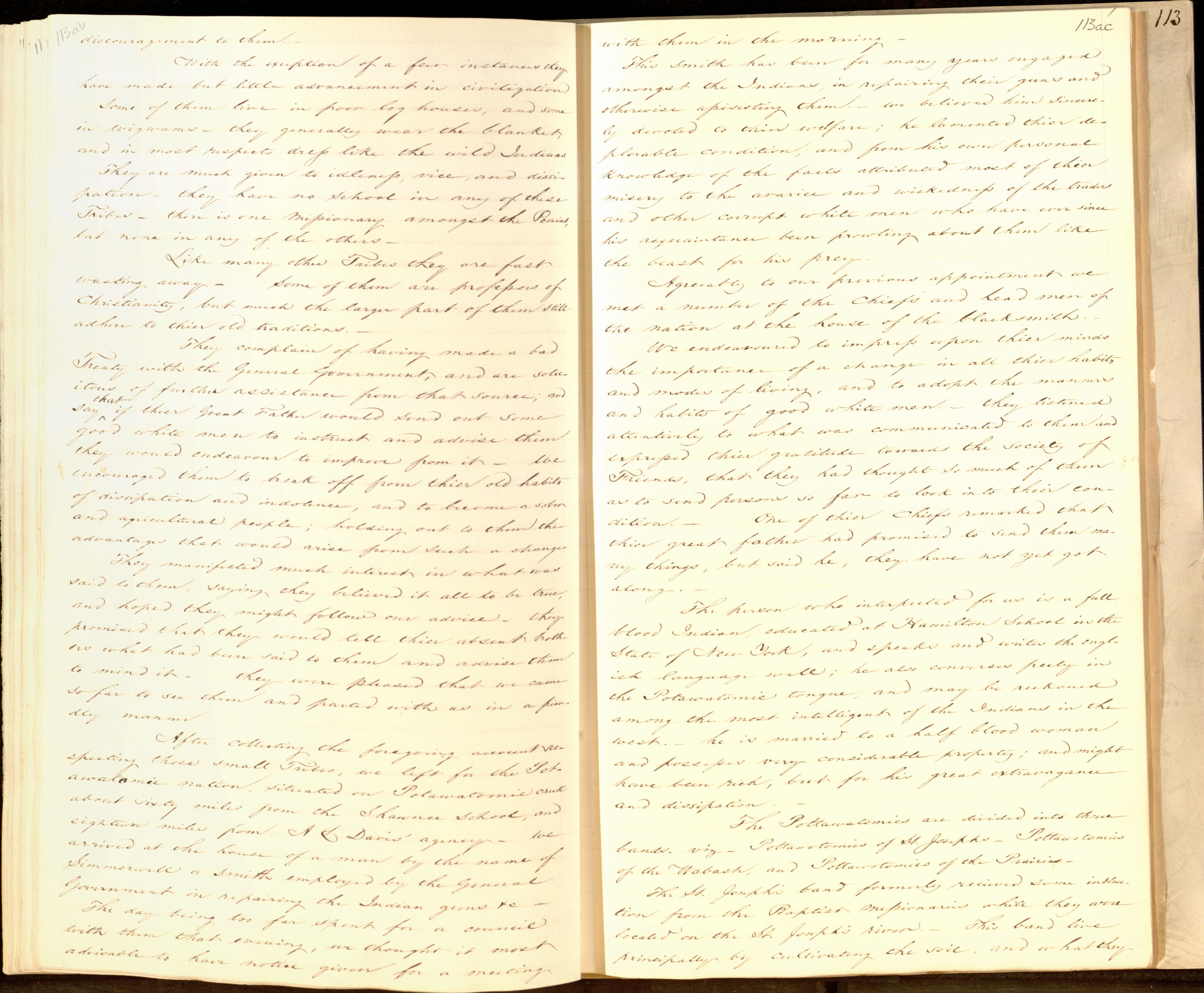discouragement to them.
With the exception of a few instances they
have made but little advancement
in civilization.
Some of them live in poor log houses, and some
in
wigwams--they generally wear the blanket,
and in most respects dress like
the wild Indians.
They are much given to idleness, vice, and dissi-
pation. they have no
school in any of these
Tribes--there is one Missionary amongst the Peorias
but none in any of the others.
Like many other Tribes they are fast
wasting away. Some of them are
professors of
Christianity, but much the larger part of them still
adhere to thier old traditions.
They complain of having made a bad
Treaty with the General Government
itous of further assistance from that source; and
say that if thier Great Father would send out some
good white men to instruct and advise them
they would endeavour to improve from it. We
encouraged them to break off from thier old habits
of dissipation and indolence, and to become a sober
and agricultural people; holding out to them the
advantage that would arise from such a change.
They manifestid much interest in what was
said to them, saying they believed
it all to be true,
and hoped they might follow our advice. They
promised that they would tell thier absent broth-
ers what had been
said to them and advise them
to mind it. They were pleased that we came
so far to see them and parted with us in a frien-
dly manner
After collecting the foregoing account re-
specting those small Tribes, we
left for the Pot-
awatomie
about sixty miles from A L Davis
arrived at the house of a man by the name of
Simmerwell
Government
The day being too far spent for a council
with them that evening, we thought it most
advisable to have notice given for a meeting
with them in the morning.
This smith has been for many years engaged
amongst the Indians, in repairing
their guns and
otherwise assisting them. We believed him sincere-
ly
devoted to thier welare; he lamented thier de-
plorable condition; and from
his own personal
knowledge of the facts attributed most of thier
misery to the avarice and wickedness of the traders
and other corrupt
white men, who have ever since
his requaintance been prowling about them
like
the beast for his prey.
Agreeably to our previous appointment we
met a number of the Chiefs and head
men of
the nation at the house of the blacksmith.
We endeavoured to impress upon thier minds
the importance of a change in all
thier habits
and modes of living, and to adopt the manners
and habits
of good white men. They listened
attentively to what was communicated to
them and
expressed thier gratitude towards the society of
Friends,
that they had thought so much of them
as to send persons so far to look
into their con-
dition. One of thier Chiefs remarked that
thier great
father had promised to send them ma-
ny things, but said he, they have not
yet got
along.
The person who interpreted for us is a full
blood Indian, educated at
Hamilton School in the
State of New
York
ish language well; he also converses freely in
the Potawatomie tongue, and may be reckoned
among the most intilligent of the Indians in the
west. he is married to a half blood woman
and possesses very considerable property; and might
have been rich, but for his great extravagance
and dissipation.
The Pottawatomies
bands. viz. Pottawatomies of St. Josephs--Pottawatomies
of the Wabash, and Pottawatomies of the Prairies.
The St. Joseph's
tion from the Baptist
located on the St. Joseph's
principally by cultivating the soil, and what they

